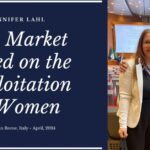That’s the title of a book I just learned about and am now anxious to read. Call me suspicious, but when I see the phrase “end-of-life care” in today’s times, it is often code for the physician-assisted suicide or euthanasia supporters. Putting my fears to rest, the authors’ mission statement includes this clarification:
Although we do support gaining control over end-of-life processes, we do not support euthanasia, suicide, or physician-assisted suicide. We believe that palliative and hospice care hold the answers to the question: “How do we create peace at the end of life and how can we have a good death?”
Phew! What a relief.
What is even more encouraging is the way I stumbled upon this book and the authors. Trending as most popular read over at the LinkedIn American Society for Bioethics group is a blog post titled, “I loved my Mom so so much and I know she would be very proud of how I handled her final moments” written by pharmacist George Launius.
I have to confess, it was the “pharmacist” identifier that first raised my suspicions about this being a soft plug for assisted killing. But it wasn’t! It’s a beautiful description of good end-of-life planning and decision-making, involving family members, and true end-of-life care. In short, good Hippocratic Medicine.
Sadly, many who have been won over to the side of the pro-assisted killing camp feel that their choice is either choosing assisted killing, or living forever hooked up to machines enduring every test, treatment, and therapy modern medicine has to offer.
Read pharmacist George Launius’ blog post and tell me what you think.
And ask yourself, do you have your advance directive in order? Have you discussed with your family and loved ones, your end-of-life wishes in case you can’t speak for yourself?
If not, maybe this piece will prompt you to get these important documents in order.
Author Profile

- Jennifer Lahl, MA, BSN, RN, is founder and president of The Center for Bioethics and Culture Network. Lahl couples her 25 years of experience as a pediatric critical care nurse, a hospital administrator, and a senior-level nursing manager with a deep passion to speak for those who have no voice. Lahl’s writings have appeared in various publications including Cambridge University Press, the San Francisco Chronicle, the Dallas Morning News, and the American Journal of Bioethics. As a field expert, she is routinely interviewed on radio and television including ABC, CBS, PBS, and NPR. She is also called upon to speak alongside lawmakers and members of the scientific community, even being invited to speak to members of the European Parliament in Brussels to address issues of egg trafficking; she has three times addressed the United Nations during the Commission on the Status of Women on egg and womb trafficking.
Latest entries
 Assisted Reproductive TechnologyApril 16, 2024Founder Jennifer Lahl’s Speech on Surrogacy to the Casablanca Declaration
Assisted Reproductive TechnologyApril 16, 2024Founder Jennifer Lahl’s Speech on Surrogacy to the Casablanca Declaration #BigFertilityFebruary 27, 2024No, Alabama Didn’t Ban IVF
#BigFertilityFebruary 27, 2024No, Alabama Didn’t Ban IVF ArticleSeptember 25, 2023The Little Engine That Could
ArticleSeptember 25, 2023The Little Engine That Could SurrogacySeptember 12, 2023Surrogacy Scandals Continue
SurrogacySeptember 12, 2023Surrogacy Scandals Continue

